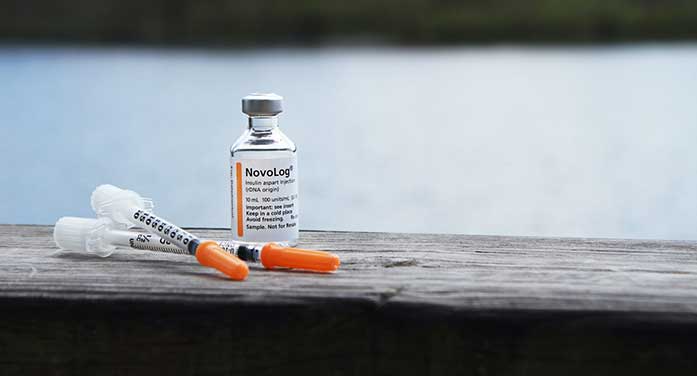A little-understood link between insulin resistance in cells and obesity could hold the key to improving immune responses against COVID-19 and other viruses, according to University of Alberta researcher Sue Tsai.
“We hypothesize that insulin resistance in immune cells such as B cells is a major link between obesity and an impaired antiviral response, leading to increased disease severity and associated mortality,” said Tsai, an assistant professor of medical microbiology and immunology in the Faculty of Medicine and Dentistry and Canada Research Chair in Immunometabolism/Diabetes.
Tsai received $830,026 to investigate the possible link. It’s one of 22 new U of A projects to receive a total of $14.7 million in funding from the Canadian Institutes of Health Research.
There is a known correlation between high body mass index, an indicator of obesity, and how sick people get during a respiratory infection. But the mechanism behind it is not clear.
“During the H1N1 pandemic in 2009, obesity emerged as the leading risk for severe disease requiring hospitalization,” said Tsai, who is a member of the Alberta Diabetes Institute, the Li Ka Shing Institute of Virology and the Women and Children’s Health Research Institute.
“Right now, again, obesity and Type 2 diabetes are becoming leading risk factors for severe COVID-19.”
Insulin resistance is a metabolic abnormality that is prevalent in aged and obese individuals. It can lead to high blood glucose and Type 2 diabetes.
“All cells of the body, except for the red blood cells, have an insulin receptor,” she said. “We know what it does in metabolic tissue such as the adipose tissues, the liver and muscles, but we don’t understand what it does to the immune system.”
The Tsai team made an intriguing discovery that B cells – white blood cells that produce antibodies when the body is fighting a virus – can develop insulin resistance during diet-induced obesity. Now the researchers will explore the role of insulin in regulating immune response and how it is altered during obesity, using animals that have been modified to lack insulin receptors in their B cells.
The quantity and quality of antibodies produced by B cells can affect not only the immediate response to viral exposure but also future protection, Tsai said, because B cells acquire immunological memory. Once they’ve experienced an infection or been prompted by a vaccine to produce antibodies, they are primed to fight quickly when they see the same infectious agent again.
Obesity has been correlated with a weakened immune response to vaccines against influenza, hepatitis B and tetanus, she noted, and may also be responsible for the dysregulation of the immune system in some people with COVID-19.
Tsai and her research team will examine how the B cells metabolize glucose, amino and fatty acids as fuel, and will observe whether administering calorie-restricted diets or diabetes medications can boost B cell responses.
The project will be carried out with a number of collaborators, including Caroline Richard, a nutrition and immunology researcher in the Faculty of Agricultural, Life and Environmental Sciences; Matthew Macauley, a B cell glycoimmunology researcher in the Faculty of Science; the U of A’s Metabolomics Innovation Centre; and Igor Jurisica, a computational biologist at the University Health Network.
| By Gillian Rutherford
Submitted by the University of Alberta’s Folio online magazine. The University of Alberta is a Troy Media Editorial Content Provider Partner.
© Troy Media
Troy Media is an editorial content provider to media outlets and its own hosted community news outlets across Canada.



